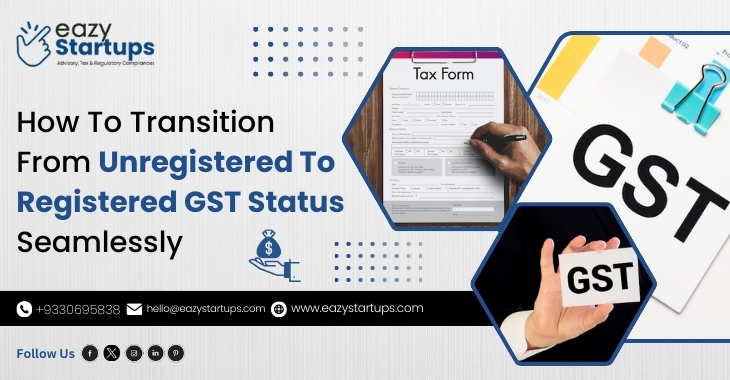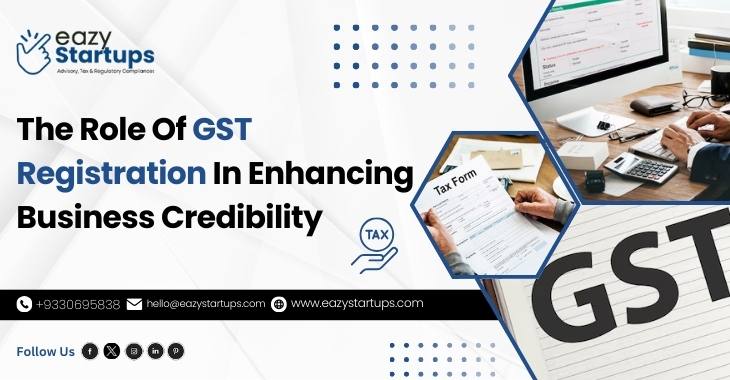Starting or running a business in India comes with its share of paperwork, and GST Registration is one of the most important pieces. Since its rollout in 2017, GST has changed how businesses operate nationwide. However, many business owners still struggle with registration issues that can lead to penalties or business disruptions.
Let’s look at some simple ways to avoid common GST registration problems:-
1. Know When You Need to Register
2. Gather All Documents Before Applying
3. Double-Check Your Business Details
4. Choose the Right Business Category
5. Keep Digital Signatures Ready
6. Follow Up After Submission
7. Maintain Proper Business Address Proof
Know When You Need to Register:
Not every business needs GST registration right away. You must register if your annual turnover exceeds ₹40 lakhs for goods businesses or ₹20 lakhs for service businesses (lower in some special category states). Many new entrepreneurs register too early or too late because they don’t track their numbers. Keep an eye on your turnover and apply at the right time – not before you need to (which creates unnecessary compliance work) and not after (which can result in penalties).
Gather All Documents Before Applying:
The GST portal won’t process incomplete applications. Before starting, keep these handy: PAN card, Aadhaar card, business registration documents, bank account details, and property papers for your business location. You’ll also need partnership deeds or incorporation certificates for partnerships or companies. Collecting everything beforehand saves you from the frustration of rejected applications.
Double-Check Your Business Details:
Small mistakes can cause big headaches! Many applications get rejected because of incorrect business names, addresses, or PAN details. Ensure your business name matches exactly what’s on your PAN card and other identity documents. Even a small difference, like using “Pvt Ltd” instead of “Private Limited”, can create issues. Take five extra minutes to review everything before submission.
Choose the Right Business Category:
Selecting the correct business category and HSN codes (Harmonized System of Nomenclature). These codes determine your tax rates and compliance requirements. Many business owners select incorrect categories in a hurry and face problems later. If unsure, consult a tax professional who understands your industry before submitting your application.
Keep Digital Signatures Ready:
Companies and LLPs need a valid Digital Signature Certificate (DSC) to complete GST Registration. Many businesses face delays because their DSC expired or wasn’t properly installed on their computer. If you’re a company, check your DSC validity before starting the registration process. Getting a new one takes time, so plan accordingly.
Follow Up After Submission:
Your job isn’t done after hitting “submit.” The GST department might ask for additional information or clarification. Many applications get stuck simply because business owners don’t check their email for these notices. Log into the GST portal regularly after submission and check your registered email daily for any communications from tax authorities.
Maintain Proper Business Address Proof:
Many GST applications get rejected due to insufficient proof of address. Make sure you have a proper rent agreement, electricity bill, or property papers in your business name. If you’re operating from home, get a No Objection Certificate from your landlord. This simple step prevents one of the most common registration rejections.
Conclusion
GST Registration doesn’t have to be a headache if you approach it with some preparation and attention to detail. Understanding the requirements, collecting the right documents, and carefully filling out the forms can save you weeks of back-and-forth with tax authorities. And remember – if things get complicated, don’t hesitate to seek help from a GST practitioner. A small consultation fee now can prevent costly mistakes down the road.
If you need professional help with the Online GST Registration process, reach out to our expert team at Eazy Startups, India. We guide you through every step, ensuring a smooth and error-free process so you can focus on growing your business while we handle the paperwork. Contact us for more details.











Recent Comments